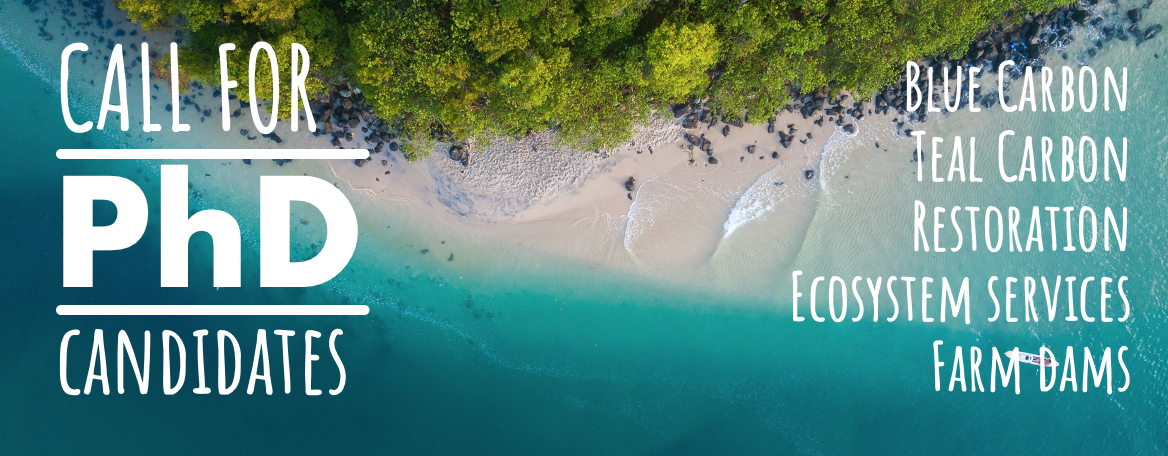OPPORTUNITIES
PhD Opportunity: Investigating the Feasibility of Ocean Alkalinity Enhancement
Application Deadline: 28 August 2024.
Are you passionate about climate change mitigation and marine science? Join us in pioneering research on Ocean Alkalinity Enhancement (OAE), a promising strategy to combat global warming.
Project Overview
This PhD project aims to explore the feasibility of Ocean Alkalinity Enhancement (OAE) by one or more of the following five critical dimensions listed below. Detailed plans for each of the below will be discussed with short-listed applicants, and scope of the PhD will be tailored based on the student’s skills and interests.
- Alkaline Material Supply Chain
- Chemistry Performance
- Environmental Risks and Considerations
- Financial Feasibility
- Monitoring, Reporting, and Verification (MRV) Feasibility
- Legal, Carbon Rights and Benefit Sharing
Key Responsibilities
- Conduct comprehensive literature reviews and synthesize existing knowledge.
- Perform laboratory experiments and field studies to assess chemical and ecological impacts.
- Collaborate with stakeholders to evaluate socio-economic and policy implications.
- Develop and apply analytical models to predict outcomes and inform decision-making.
- Disseminate research findings through academic publications, conferences, and outreach activities.
Qualifications
- A Master’s degree in Marine Science, Environmental Science, Chemistry, Economics, or a related field.
- First-authored publication in a good quality peer-reviewed scientific journal.
- Excellent communication skills for stakeholder engagement and dissemination.
- Demonstrated ability to work independently and as part of a multidisciplinary team.
- A passion for environmental sustainability and climate change mitigation.
Funding and Support
We are seeking candidates to apply for a Research Stipend Scholarship. This PhD project is fully funded, covering tuition fees, a competitive stipend, and research expenses with conditions. Additional support for conference attendance and professional development will be provided.
How to Apply
Interested candidates should submit the following documents to Dr. Anirban Akhand (anirban.akhand@gmail.com) and cc Prof. Peter I. Macreadie (pmac@bluecarbonlab.org) by 28 August 2024
- A cover letter outlining your research interests and suitability for the project.
- A detailed CV, including relevant research experience and publications.
- Academic transcripts and certificates.
- Contact details for two academic referees.
Contact Information
For more information about this exciting opportunity, please contact:
Supervisor’s Name: Dr. Anirban Akhand, Prof. Peter Macreadie, Dr. Stacey M. Trevathan-Tackett
Join us in advancing the frontier of climate change mitigation research through innovative ocean science. Apply now to contribute to a sustainable future!
Successful applicants are expected to commence in March 2025.
Call for PhD candidates to join our team and lead research on Coastal ‘Blue’ Carbon, Freshwater ‘Teal’ carbon, Ecosystem restoration, Ecosystem services, Farm Dams, and more. Please get in contact with pmac@bluecarbonlab.org and attach your CV and a cover letter outlining your research interests and experience.
American-Australian Education Fund
The USA to Australia Graduate Education Scholarships will support full-time Graduate level study (Masters, Ph.D. or Postdoctoral Research) in the fields of STEM at an accredited educational institution in Australia. Open for applications in August each year.
Volunteers & Interns (open)
Students are always welcome to join us in the laboratory and the field. Please fill out this form to let us know how you would like to get involved! Depending on your skills and interest, you might help processing soil samples in the lab, entering Blue Carbon data, joining one our coring campaigns, and more. It is a great opportunity to get upskilled and meet our scientists!
At the Blue Carbon Lab, we are regularly seeking research assistants, HDR students, research fellows and visiting scientists to participate in our research projects. We welcome you to get in touch with the lab’s director pmac@bluecarbonlab.org, attaching your CV and a cover letter outlining your research interests and experience.


